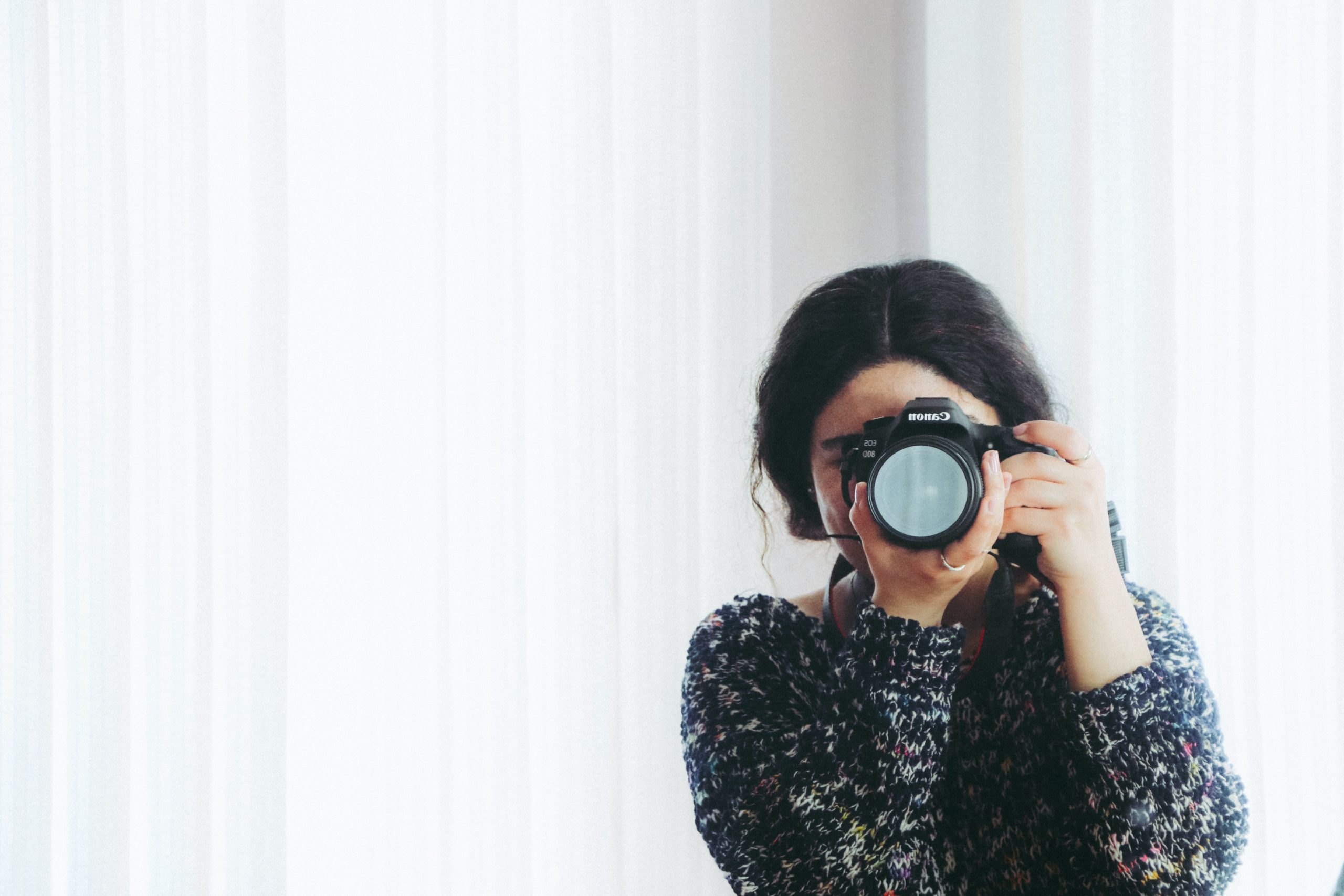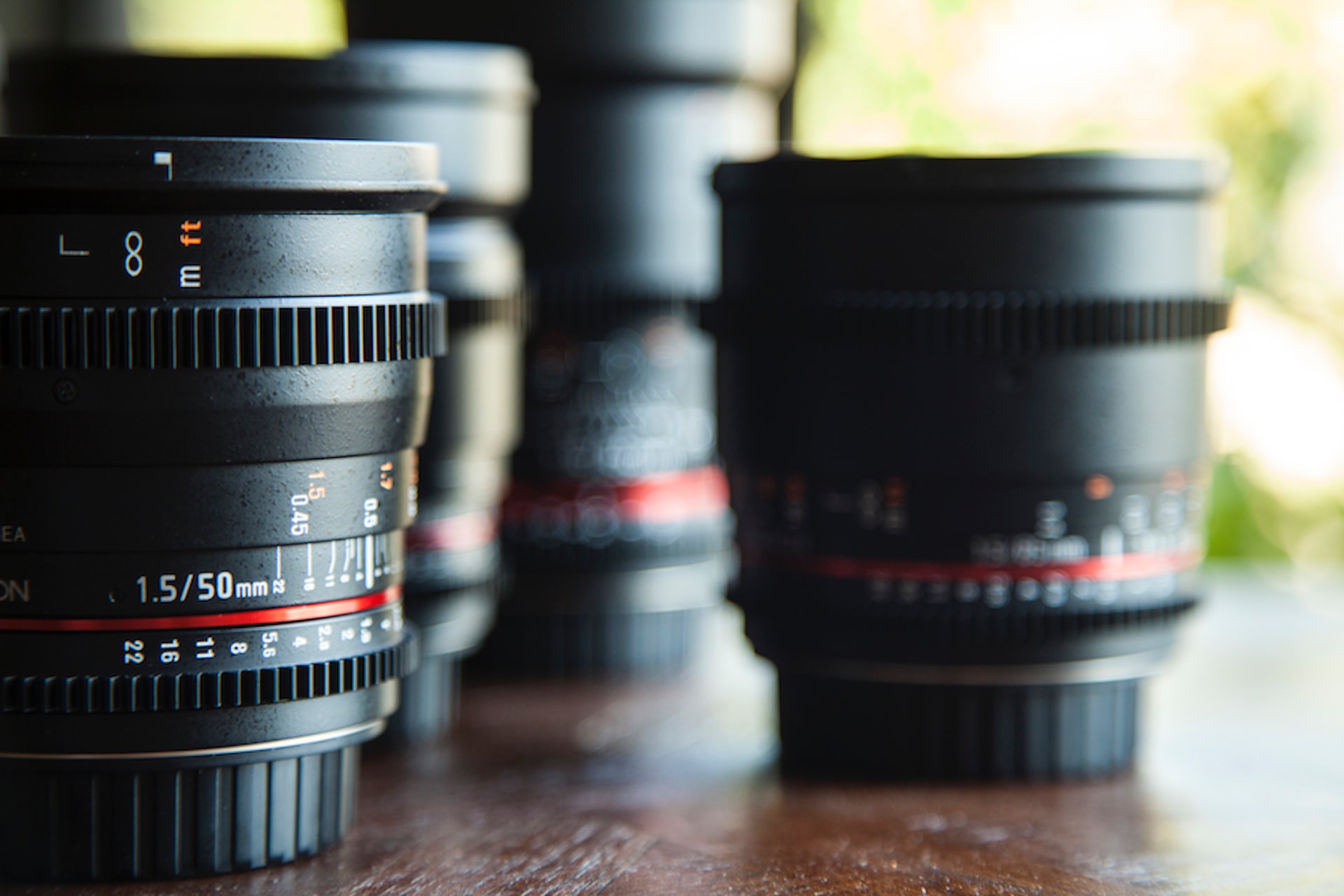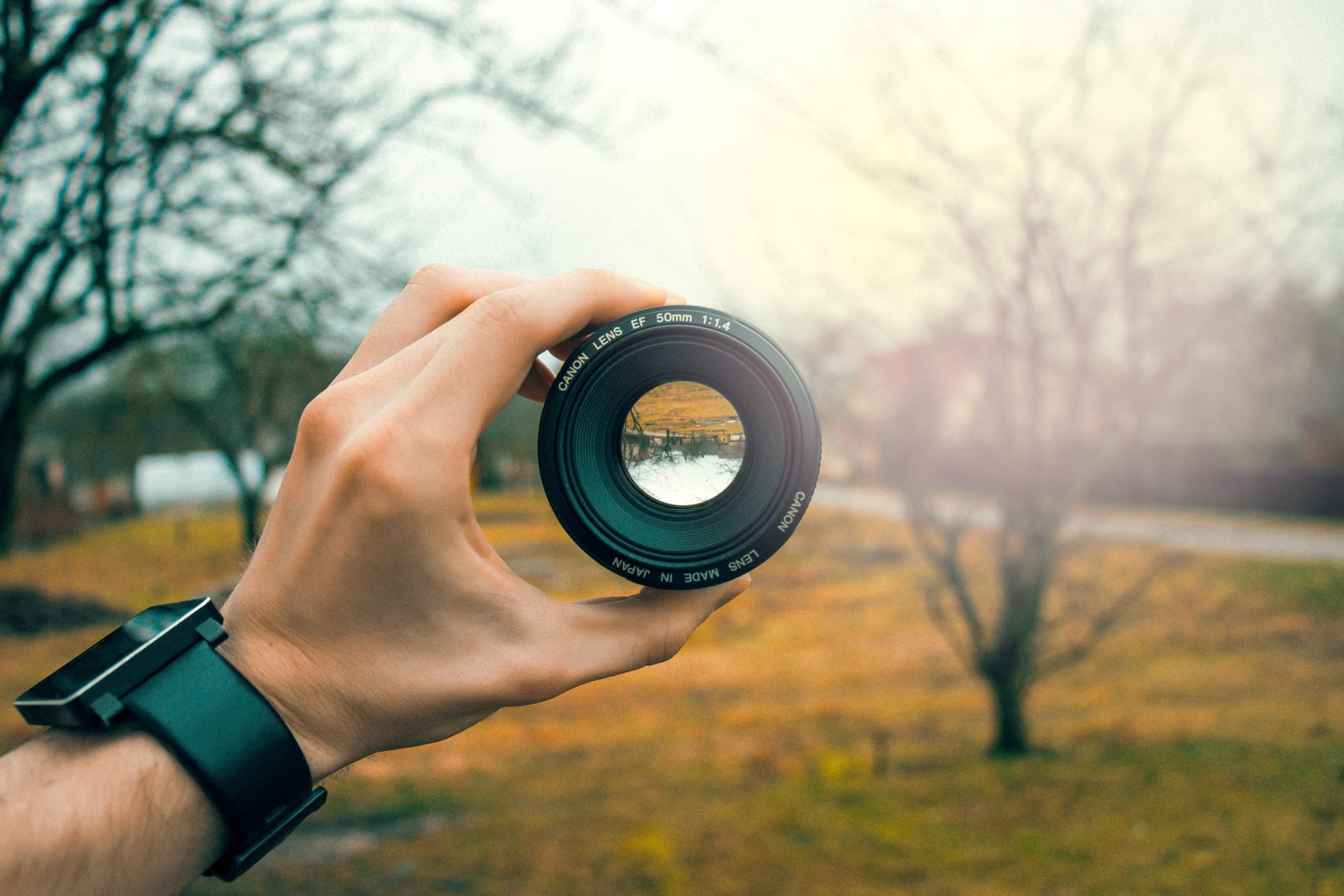The Best Way to Clean Camera Lenses
This entry was posted on November 12, 2021.

When your camera lenses need a clean, it's best to get on with it, and do it the right way. Burying your head in the sand and avoiding the chore will come back to bite you. A dirty lens means low-quality pictures, and who wants to look at those? But what is the best way to clean your camera lens?
In this practical guide you'll learn the do's and don'ts of cleaning camera lenses. We'll show you the best practices and common pitfalls, so you can get the most out of your images!
How to clean your camera lenses
To clean camera lenses the right way, you'll need a few items:
- an air blower
- a soft-bristled lens brush
- lens-cleaning fluid
- a microfibre cloth or cleaning wipes
It's an easy-to-follow process, broken down into the following four steps. Make sure to apply these steps to both the front and back glass elements of each lens.
Step 1: Inspect lenses
The first thing you should do is inspect your lenses. Lay them out on a table under good light. With a careful eye, check for any fingerprints, smudges, specs, smears, and dust.
By inspecting, you'll see whether they actually need cleaning before you dive in. Too much cleaning can damage lenses over the long run — so any cleanaholics read that again!
If, upon inspection, you find any signs of dirt and/or dust, go to step two. Otherwise, put the lens away, grab the next one, and repeat your inspection.
Step 2: Air blower / soft-bristle lens brush
Start with the air blower.
- Hold it with one hand.
- With your other hand, hold your camera lens angled downwards. Any dislodged dirt and dust should fall down and away from the surface of the lens.
- Hold the blower a few centimetres away so that you don't hit the lens with it, and give it a good squeeze. The air should gush out nice and fast!
Use a soft-bristle lens brush if, after using the air blower, you can still see dust or particles on the lens. Get your brush and gently wipe the lens surface and inside edge of the lens barrel. Keep holding the lens at a downward angle and try not to touch the brush bristles.
Step 3: Apply cleaning fluid to cloth
To wipe a camera lens, you can use either a microfibre lens cloth or lens cleaning wipes. Both have pros and cons.
Lens cleaning wipes are cheap, have pre-applied cleaning fluid, and are disposable. Although affordable, over time the cost of replacements will likely add up to more than a microfibre cloth.
A Microfibre cloth is a one-off expense as it can be reused, but over time can become less effective with wear and tear. The cloth itself will need cleaning now and again, and make sure to give it a shake every time before you use it. This will help remove any potential dust and dirt.
You'll also need lens cleaning fluid to use with your microfibre cloth. It comes in either spray or liquid form, and you should always apply it to the cloth to avoid damaging the lens.
A good lens cleaning solution will leave no smears or smudges and can be used sparingly. Apply a couple of sprays or drops and you're good to wipe.
Step 4: Wipe the lens
The final step is to wipe the lens. This will clean it of any smears/smudges not removed by the blower and brush.
Start in the centre and move towards the edge in a circular motion. That way, if any dirt remains, it won't be in the middle of the lens.

What should you not clean a camera lens with?
Now that you know the safest and most effective steps for cleaning camera lenses, it's time for the pitfalls. Avoid these three common mistakes, or you may end up with dirtier (or worse, damaged) lenses.
Pitfall #1 - Cleaning lens glass with water
Water contains minerals such fluoride and chlorine which can be harmful to glass and may leave residues. Hard water (water with a high mineral concentration) could even leave micro scratches on lenses.
Pitfall #2 – Cleaning lenses with clothes
Avoid using clothes to clean camera lenses, there's a chance that the fibres can create micro-scratches.
Some say that if the item of clothing contains 100% cotton, then it's ok. We disagree. We say don't chance it. Stick to microfibre cloths or tissues, their fibres are specifically designed for camera lenses.
Pitfall #3 - Blowing lenses with your mouth
Blowing on your lens won't damage it, but we're against it unless you don't have your blower or brush at hand.
It's plain and simple. You may get spots of saliva on your lens, further dirtying it. Why create extra work for yourself?
What household item can I use to clean my camera lens?
You might be able to save a few quid if you have any of the following items lying around your house.
Just be aware that results won't be as shiny as with using a camera cleaning kit.
Breath
Many photographers would scream upon reading this, but hear us out. If you're out of cleaning fluid, then the condensation from breathing on your lens can lift dirt and grime when wiped with a cloth.
This should only be on rare occasions of dire necessity. It’s important to remember that regular breathing on a camera lens can contribute to fungus growth. If fungus gets inside the lens barrel, then you've got a real cleaning job on your hands!
Toothbrush
A toothbrush can come in handy for cleaning the outside of your camera lens. The less delicate plastic will cope with the harder bristles of a toothbrush, which will help remove muck for a clean finish.
Glasses cloth
If you wear glasses, then you already own a microfibre cloth. Those handy little cloths which come free in your glasses case are the same ones used for cleaning camera lenses.
Although, this is another DIY method that we're against. The less you use a microfibre cloth, the less wear and tear (as mentioned earlier). It's best to have a separate one for your camera.

Can you use rubbing alcohol to clean camera lenses?
This question seems to split hair amongst photographers, but the answer is yes. Rubbing alcohol, aka isopropyl-alcohol, can be used to clean your camera lenses.
Most camera lens cleaning solutions contain isopropyl-alcohol, so there's a low risk of causing damage by using it.
To be extra safe, only use rubbing alcohol with a high percentage of purity. The purer the alcohol, the less additive ingredients which can contaminate lenses. 95% purity is a good benchmark.
Can you clean camera lenses with glasses cleaner?
This one comes down to personal preference. You can use glasses lens cleaner for camera lenses… but the question is, do you really want to?
Most camera lenses have an optical coating of magnesium fluoride and/or silicon monoxide to help with light transmission. These are scratch-resistant, but glasses cleaner isn't designed with them in mind.
Play it safe, damaging lens coating can have a big impact on images. Stick to camera lens cleaner or high purity rubbing alcohol!
Extra tips
- Check if your lens filters need cleaning. Your lens-cleaning session will be for nothing if you then go and shoot with a dirty filter.
- Make sure your lens caps and cases are also clean. Otherwise, you risk dirtying the lens again straight away.
- Protect your lenses after cleaning. Immediately replace caps and then put the lens back in its case.





